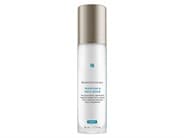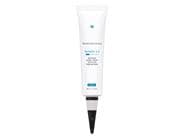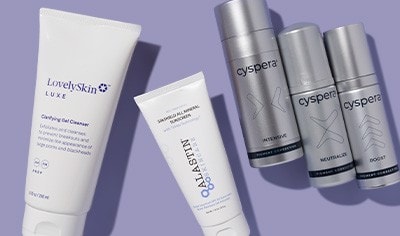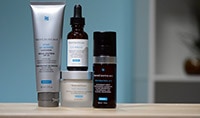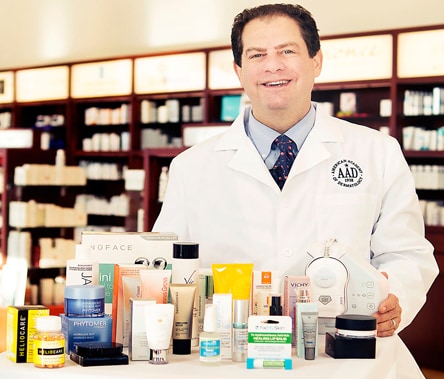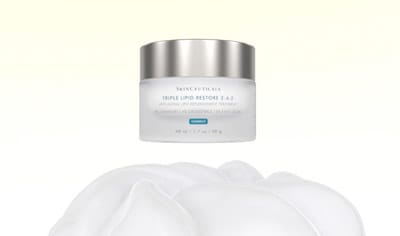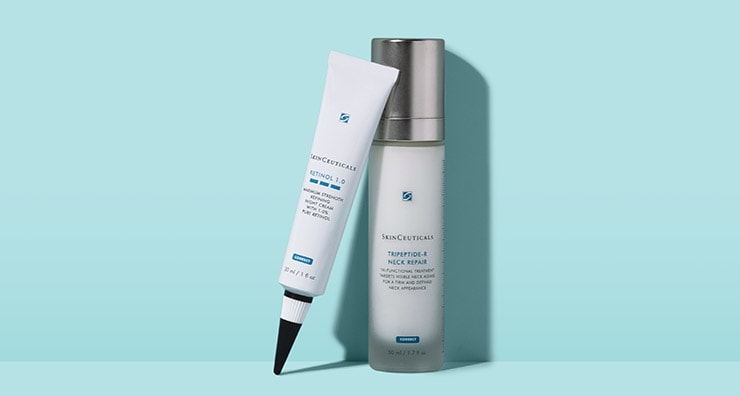
With its proven ability to boost collagen production and reduce the appearance of wrinkles, retinol has earned its rank as a gold-standard ingredient in anti-aging skin care. As a trusted ingredient in everything from eye creams to face serums, it’s no surprise that retinol is also an active ingredient in anti-aging night creams by SkinCeuticals. If you’ve experienced the benefits of retinol on your face, you’re probably wondering whether you could benefit from using retinol products on your neck as well. We looked to board-certified dermatologist and LovelySkin CEO Dr. Joel Schlessinger to answer all your questions about using retinol on your neck, including:
What are the best SkinCeuticals retinol products for the neck?
What are the best SkinCeuticals retinol products for your face?
Can you put retinol on your neck?
Yes, you can safely put retinol creams on your neck. “Retinol can sometimes cause redness or irritation as a side effect, but it is worth the effort. Fortunately, there are beginner formulations that can get skin acclimated gradually,” Dr. Schlessinger says. “The skin on your neck tends to be thinner and more delicate than the skin on your face, but if you work up very carefully, using it sparingly and starting every third or fourth night, you should be able to make it work for you.”
Should you put retinol on your neck?
If you’re noticing signs of aging on your neck, then you can likely benefit from using a retinol product and should consider incorporating a retinol neck cream into your routine. “Retinol increases collagen production in the skin, and can work to improve the appearance of common signs of aging such as sagging, wrinkles or fine lines on your neck,” Dr. Schlessinger says.
Tips for using retinol on your neck
When using retinol on your neck, there are some things to keep in mind in order to maximize the benefits and keep your skin looking and feeling healthy. Here are our top tips for using retinol on your neck:
Use sunscreen regularly.
Dr. Schlessinger recommends that everyone use a daily sunscreen of SPF 30 or higher on all exposed skin. This is especially crucial if you are using retinol on your neck. “Retinol use can sometimes cause sun sensitivity, so if you are using retinol regularly on your neck, make sure you are also applying sunscreen on your neck as well.”
Start slow at first
Retinol products are typically available in a range of concentrations, from 0.1% up to 1%, which is the highest percentage of retinol available for purchase without a prescription. “If you haven’t used retinol on your neck before, I always want my patients to start with a lower concentration and apply a very small amount once or twice a week to start,” Dr. Schlessinger says. “If your skin responds well after couple weeks, you can move to using it every other day and eventually daily use. This is not a race—it is a journey. Those who approach retinol use carefully are usually the happiest of my patients as they get to the point where they see results and aren’t turned off when they first start introducing it into their regimens.”
Try a neck cream formulated with retinol.
If you want to try using retinol on your neck, a dedicated neck cream is a great place to start. Neck creams with retinol are specifically formulated for use on the neck, where the skin tends to be thinner and more delicate than anywhere else on your body. Neck creams containing retinol also typically include other active ingredients that are designed to improve the texture of the skin on your neck, such as peptides, which are thought to help loose, crepey neck skin appear firmer.
The best SkinCeuticals retinol products for your neck
SkinCeuticals Tripeptide-R Retinol Neck Repair
This dedicated neck cream is specifically formulated for daily use, with 0.2% time-released retinol to help improve the appearance of wrinkles as well as a tripeptide complex to help sagging neck skin appear firmer. Regardless of whether you have dry, normal, or oily skin, this retinol neck cream can be seamlessly incorporated into your existing skin care routine. In a 16-week clinical study, users reported a 28% improvement in neck skin smoothness and a 27% improvement in neck skin crepiness.
The best SkinCeuticals retinol products for your face
SkinCeuticals Retinol 0.3 Refining + Anti-Aging Night Cream
Are you looking to add a retinol cream to your skin care routine? The skin on your face can typically tolerate a higher concentration of retinol than on your neck, so SkinCeuticals created this retinol night cream specifically for your face. The 0.3% concentration is SkinCeutical’s entry-level retinol product, meaning it has an appropriate concentration of retinol if you’re just starting to use it for the first time.
Once you’ve used this concentration for a few months without irritation, you might consider stepping up to using the 0.5% formula and eventually the 1% version to maximize the anti-aging benefits of retinol. The retinol featured in all three of these night creams is enhanced with stabilization technologies, designed to ensure an even release, and it’s also matched with bisabolol, a derivative of chamomile, that helps minimize skin irritation that sometimes accompanies retinol use.
Are you curious about whether you can use retinol and glycolic acid together? Learn about this and more on the LovelySkin Blog.

About the Author
Aaron serves as Editor at LovelySkin. Since graduating from the University of Nebraska at Omaha in 2016 with degrees in Creative Writing and English, he has immersed himself in the beauty industry. When he’s not writing about the latest beauty trends, he spends time cuddling his dogs, scouring antique stores, playing tennis and hiking.
Other Posts by AaronVichy hydrating essentials: Mineral 89 v...
Everything you need to know about SkinCe...
Follow us on social
Follow us on social networks and be one of the first to learn about sales, giveaways, and free samples

